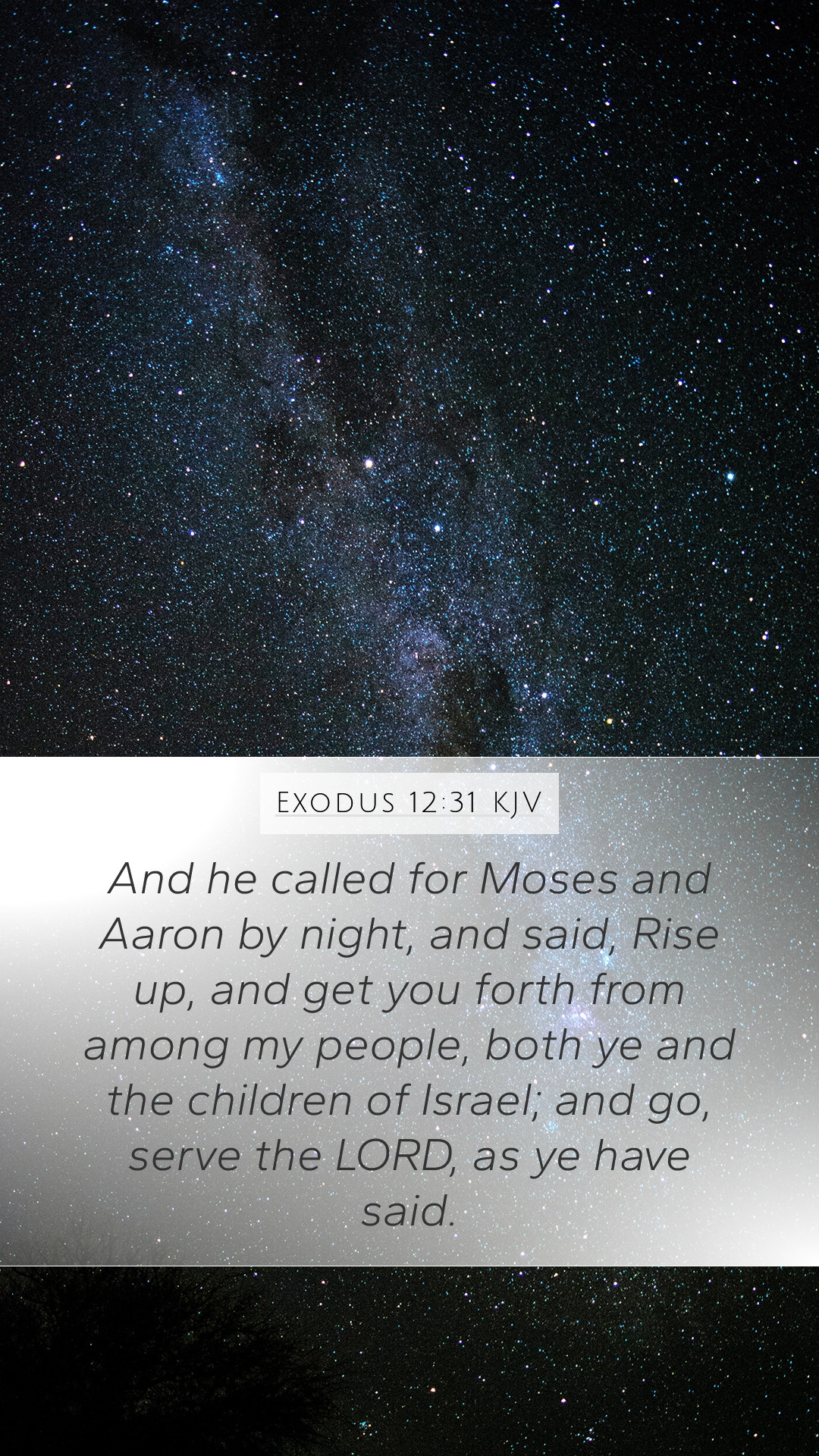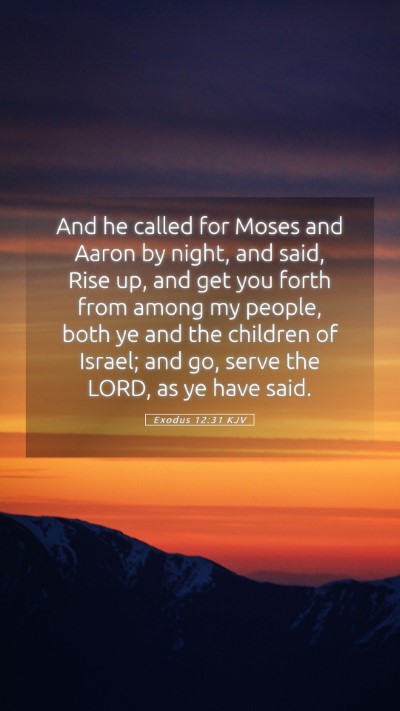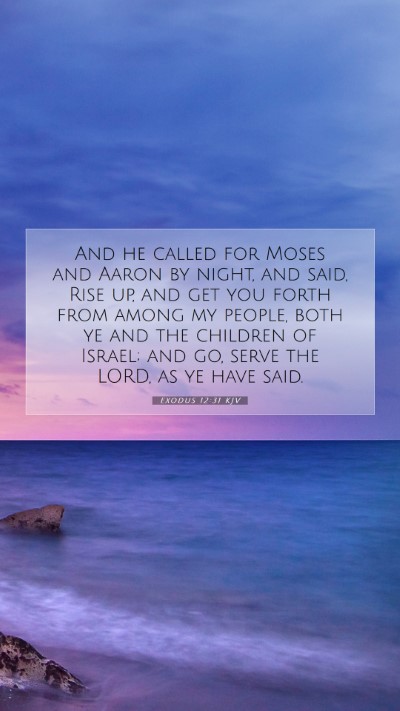Understanding Exodus 12:31
Bible Verse: Exodus 12:31 - "And he called for Moses and Aaron by night, and said, Rise up, and get you forth from among my people, both ye and the children of Israel; and go, serve the Lord, as ye have said."
Introduction
Exodus 12:31 holds significant importance in the narrative of the Israelites' liberation from Egyptian bondage. This call from Pharaoh signals a pivotal moment in the story of Exodus, representing both the culmination of the ten plagues and a divine fulfillment of God's promise to His people. The verse conveys themes of deliverance, obedience, and the urgency of God's mission, and it comes with various interpretations and insights from biblical scholars.
Commentary Insights
-
Matthew Henry's Commentary
Matthew Henry interprets this verse as a moment of divine deliverance, demonstrating how God orchestrated events to free His people from captivity. Pharaoh's urgent command reflects his helplessness against God's will and the necessity for the Israelites to leave without delay, emphasizing their liberation and the promise of a new beginning.
-
Albert Barnes' Notes on the Bible
Barnes highlights that the night call signifies the urgency of the situation. Pharaoh's concession to let the Israelites go illustrates a crucial turning point in his relationship with Moses and the power of God. This command not only marks their deliverance but is also essential for understanding the faith and obedience in responding to God's direction.
-
Adam Clarke's Commentary
Adam Clarke provides a detailed analysis of Pharaoh's decision, viewing it as both an admission of defeat and an acknowledgment of God's power. Clarke emphasizes the immediacy in the directive for the Israelites to act, linking it to the overall themes of redemption and fulfillment of God's promises to His people through decisive action.
Key Themes and Interpretations
- Divine Authority: The urgency of Pharaoh's command underscores the supreme authority of God over earthly kings and nations. It highlights the fulfillment of promises made to Abraham and his descendants.
- Obedience and Faith: The Israelites' readiness to leave illustrates their faith and obedience. This moment represents a significant transition from slavery to a life of freedom, where they are called to serve God as promised.
- Significance of Night: The setting of night portrays a transition from darkness to light—representing both physical and spiritual deliverance. It mirrors the darkness preceding the dawn of new beginnings.
Practical Applications
This verse encourages believers to reflect on the importance of heeding God's voice, being prepared for change, and acting with urgency in response to divine commands. Understanding this verse helps in applying the lessons of faith, deliverance, and obedience to daily life.
Cross References
- Exodus 3:18 - God's initial promise to Moses about the Israelites' liberation.
- Exodus 12:29-30 - The account of the final plague and its implications for Egypt and Israel.
- Isaiah 43:1 - God's promise of redemption for His people.
Conclusion
Exodus 12:31 serves as a vital scripture in understanding God’s redemptive plan for His people. Through the insights retrieved from public domain commentaries and scripture, one gains a broader perspective of the interplay between divine initiation and human response. This verse not only holds historical significance but provides ongoing relevance for believers today, encouraging them to act with faith in response to God's calling.


